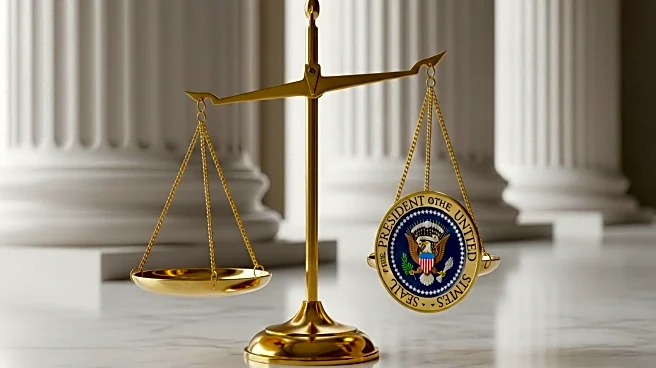What's Happening?
The Supreme Court has extended an order permitting President Trump to keep nearly $5 billion in foreign aid frozen, marking a significant victory for his administration in a dispute over presidential power. The court's conservative majority granted the administration's emergency appeal, despite dissent from the three liberal justices. This decision follows Trump's announcement last month that he would not spend the money, invoking a rarely used authority last exercised by a president about 50 years ago. The legal battle originated from Trump's decision to withhold $4.9 billion in foreign aid that Congress had approved. Trump utilized a 'pocket rescission,' a federal law mechanism allowing presidents to request Congress to cancel spending towards the end of a budget year, contingent on congressional approval within 45 days. The timing of Trump's notice means the 45-day period will not expire before the fiscal year ends on September 30.
Why It's Important?
This decision highlights the Trump administration's strategy of using emergency appeals to advance major policy objectives. The Supreme Court's rulings have previously enabled Trump to implement significant changes without full hearings or written opinions, affecting areas such as immigration, military service, and federal employment. Critics argue that this approach blurs the line between judicial review and presidential power consolidation. The case underscores Trump's broader agenda to reduce foreign aid, which has implications for America's global standing as funding for food, health, and development programs is curtailed. The ruling raises questions about the executive branch's authority to withhold congressionally appropriated funds, a matter of significant legal and practical importance.
What's Next?
The administration plans to spend an additional $6.5 billion in aid before the fiscal year concludes. However, the $4.9 billion at the center of the lawsuit is unlikely to be distributed. The case will continue in lower courts, but the Supreme Court's intervention ensures the funds will remain frozen, potentially unspent, as the legal proceedings unfold.
Beyond the Headlines
The decision may have long-term implications for the balance of power between the executive and legislative branches. It raises ethical and legal questions about the extent of presidential authority in fiscal matters and the potential impact on U.S. foreign relations and aid commitments.











